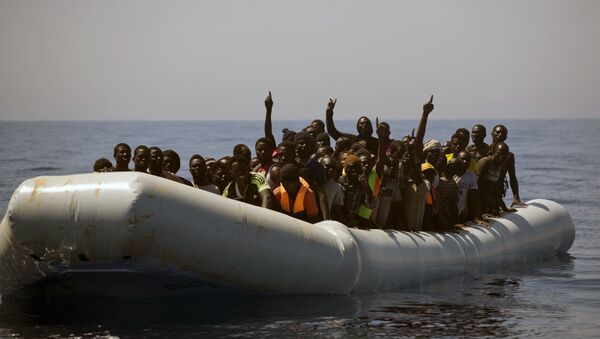Denmark's Development and Co-operation Minister Ulla Tørnæs has revealed that the Danish government is ready to contribute an extra DKK 10 million ($1.5 million) to the work of the United Nations body for refugees, UNHCR.
According to a statement by Denmark's Foreign Ministry, the money will be spent on providing information to refugees and migrants contemplating making the perilous trek to Europe by crossing the Mediterranean Sea.
More precisely, the Danish funds will primarily be spent in their countries of origin and transit, such as Algeria, Burkina Faso, Chad, Egypt, Ethiopia, Libya, Mali, Mauritania, Morocco, Niger, Senegal and Sudan, in a bid to reduce the stream of migrants from the Maghreb and Sub-Saharan Africa.
Among other things, the extra funds will be used on straightforward awareness-raising information campaigns warning of the the potential risks of such journeys, as well as on bolstering the authorities' ability to handle migrant streams and improve conditions in transit camps. The funds will also be spent on assisting with the migrants' voluntary return and re-integration in host communities.
"It is vital that we strengthen the EU's outer borders if we are to be able to handle the pressure of migrants on Europe, Tørnæs said. "At the same time, it is essential that we increase our efforts along the migration routes, for example with support for local authorities, so they can better combat people-trafficking networks and that we contribute to information campaigns so young Africans don't risk their lives on a fruitless journey to Europe."
READ MORE: Denmark's Immigration-Driven Population Growth 'Not a Gift for Economy'
The Danish Foreign Ministry stressed that "massive protection challenges" remain for refugees and irregular migrants along the Mediterranean route such as a lack of basic services and a high risk of violence, sexual assault, exploitation, trafficking and torture.
Denmark has previously contributed funds to the UNHCR for addressing the problems posed by the Mediterranean route, providing 15 DKK million ($2.3 million) in 2017 and DKK 35 million ($5.3 million) in 2018.
The number of migrants and refugees from the Horn of Africa, and West, Central and North Africa who have embarked on the journey across the Mediterranean remains high. The Western Mediterranean route currently remains the most widely-used waterway from Africa to Europe, despite efforts from the Moroccan authorities to tighten border controls in 2019. So far this year, 13,672 migrants have arrived in Europe via the Mediterranean, the UNHCR. Spain, Italy and Greece remain the most popular destinations.
READ MORE: 'Failed Experiment': New Book Denounces Denmark's Decade-Long Migration Policy


